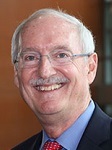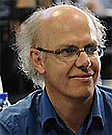Department of Digitalization
Renowned Scholars Seminar Series
Upcoming Seminars
22 March 2024, Dorothy E. Leidner, University of VirginiaTheory and Theorizing in Information Systems Research This presentation will describe various perspectives of theory and of theorizing in IS research, drawing upon literature as well as my own experiences writing various theory papers. I will draw heavily from two recent theorizing projects, one of which culminated in the CARE theory of dignity amid personal data digitalization and one of which is currently under first round revision at a major IS journal on the topic of online public shaming. I will describe my thoughts on theorizing from literature as well as theorizing from empirical observation.
10:00-12:00 HOW 60. 5.23 |
 |
Past Seminars
9 February 2024, Steve Sawyer, Syracuse UniversityStudying Work Online: Insights into Changes in Working Arrangements, Studying a Digital Platform, and Conducting Longitudinal Research Drawing on four years of data from an ongoing, longitudinal, panel-based study, in this talk I will focus on the ways in which online labor platforms are reshaping work and working. This is both framed and motivated by three ongoing changes to the economy: (1) pervasive reliance on digital connectivity - and the shift from digital systems to digital infrastructures - that are reshaping both the structures of work and labor markets; (2) the shift to knowledge-based and cognitively-demanding work that relies on abstractions, technical skills, and collaborative problem-solving as the locus of economic value; and, (3) changes in expectations of employment from the career, to the job, to the project or task. The discussion of findings will focus on the changes we are seeing in how online workers conceive their career trajectory, outline the realities of studying digital platforms (that are often disinterested in being studied), and reflect on some of the lessons learned from pursuing longitudinal research. |
 |
19 January 2024, Mikael Wiberg, Umeå UniversityTheorizing Emerging Human-Machine Relations in the Age of the Third Wave of Artificial Intelligence In this talk, I will discuss the “Third Wave of Artificial Intelligence,” including the future of work from the viewpoint of how this technology might be a substitute for human labor and its potential in terms of automation. The talk will be based on a journal paper discussing this as two extremes—a scale ranging from full automation (no interaction) to no automation (full interaction). I will present a model we have developed which enables us to examine how different interactive systems combine automation and interaction in various ways. Based on this examination, I will discuss ways of theorizing the relationship between humans and machines, especially in the context of knowledge work and the emergence of generative AI. |
 |
17 November 2023, Jason Bennett Thatcher, Temple UniversityIS Behavioral Research: From the Center to the Periphery? A Confessional Tale and Conversation The seminar will offer a confessional analysis of Dr. Jason Bennett Thatcher’s experiences as a behavioral information systems (IS) researcher to stimulate a conversation about changing trends in IS research and their implications for the discipline's legitimacy. He will argue that the shift from behavioral work at the center of the field in the late 1990s to being just one of many themes in an emerging, sometimes discordant, bricolage of the IS discipline in the 2020s not only poses identity challenges for behavioral IS researchers, but signals the need for a broader conversation about how to weave a coherent story about the identity of the IS discipline for audiences in academia and practice. |
 |
13 October 2023, François-Xavier de Vaujany, Université Paris Dauphine-PSLManagerial Apocalypses: When Digital Management Keeps Unveiling the World With World War II management has become mainly a digital process that keeps unveiling and revealing the world, what is and more and more, what’s next. Management has become a representational technique. From a set of archives related to the US American mobilization during the war and beyond, de Vaujany explores the encounter between digitality and management. He explores how digitality, both as a technique and a new semiosis, has equipped managers in search of greater control and predictability with the tools they needed. His work shows the reconfiguration of management at stake in the 40s and 50s, and a move from calculative to narrative logics. Contemporary management is henceforth made of incompleting events, voids and moments of waiting. In contrast to most theories of management describing a world of fullness and completeness, digital management is what keeps consuming the world through interruptions, voids and holes used to win a war against ghostly enemies. |
 |
12 May 2023, Dirk Hovorka, University of SydneyTrajectories, Enactments, Speculations The future is a contested space. It is always about to arrive, but never quite does. Through our enactment of theories, categories, and designs, we seek to create a better future. Our methods of observation and analysis enable backward-looking explanations of the trajectories between the past and the present. Surprisingly, IS research rarely considers the future as an inhabited, abundant world. I argue that futures are a contested concept, and within this uncertainty we find space for scientific speculation, observation and choice. To avoid sleepwalking into futures we neither desire nor understand, we can reframe our relationship to futures through speculative forays, experimentation, and design. We can imagine worlds as a site of inquiry to test theory, create novel concepts, and reflect on how values and morals will evolve. We cannot direct futures, but we can work within the imaginaries and expectations of technological and cultural conditions that will underpin futures. In this way, we can begin to envision how the world, and our science, could be otherwise. |
 |
14 April 2023, Kalle Lyytinen, Case Western Reserve UniversityFoundations of Digital Strategy: A Prolegomena This talk clarifies why and how digital strategy differs from industrial strategy. I argue that the difference is more significant than replacing analog information with digital information (digitizing) across industrial organizations and related effects on strategy execution. To articulate the true nature of the difference, I review the specific ontological status of digital material and objects in industrial operations and related conditions for strategy formulation. I recognize the unique semiotic quality of digital objects and apply the idea of von Neumann architecture to demonstrate that digital strategy uses as leverage points a three-pronged, largely orthogonal processes of embedding- a process of interlacing elements of one activity/innovation domain to that of another. The three types of embedding necessary for digital strategy articulation are defined: operational embedding (digital object-computer), virtual embedding (real-world phenomena-digital objects), and contextual embedding (performing digital objects in a social setting). During each instance of strategy formulation, the three embedding processes are necessary and interact in unique ways. |
 |
24 March 2023, Daniel Veit, University of AugsburgResearch on Sustainability or Sustainable Research: Charting the Path for Future Work on Digitalization Over the past 150 years, humans have consumed as many natural resources as they had consumed in the past 20,000 years. In part, this increasing clip of consumption has been driven by digitalization, as novel, technology-based solutions to create value. The consumption of resources caused by digitalization evokes the question “is more digitalization really better, or given the harm to the planet, this is one context where less is more?” We develop a research agenda for understanding the full cost of digitalization in three parts, first, we offer a definition of sustainability, second, we offer a concise review of the digitalization and sustainability literature, and third, we offer suggestions for research that advances our understanding of how digitalization impacts sustainability. |
 |
03 February 2023, Viswanath Venkatesh, Virginia TechLet’s Get Ready to Contextualize Building on continuing calls to contextualization and the impacts that context can have, I discuss specific potential approaches to contextualization and how rich scientific contributions can be made in a variety of emerging contexts resulting from digitalization. I also illustrate missed opportunities in prior research due to a lack of sufficient contextualization. Finally, I seek to broaden the view of scientific contributions to be more inclusive of contextualized contributions—and how such a broader view itself can be the key to successful contextualization and concomitant contribution, especially in contexts emerging as a result of digitalization. |
 |
21 February 2020, Youngjin Yoo, Case Western Reserve UniversityOrganizing in the Age of Organic Machines |
 |
31 January 2020, Magnus Mähring, Stockholm School of EconomicsEarly-Stage Platform Ecosystems Formation |
 |
06 December 2019, Alan Hevner, University of South FloridaDaring to Do Good Design Science Research |
 |
22 November 2019, Alan R. Dennis, Indiana UniversityFake News on Social Media |
 |
25 October 2019, Eric K. Clemons, University of PennsylvaniaThe Emerging Discipline of Social Welfare Computing and the Future of Democracy |
 |
13 September 2019, Ping Zhang, Syracuse UniversityA Motivational Approach to Gamification Design |
 |
10 May 2019, Susan Scott, London School of EconomicsDigital Work: Studying Materialization in Practice |
 |
26 April 2019, Saonee Sarker, University of VirginiaThe “Dark” and “Bright” Sides of Technostress in Healthcare: A Multi-method, Multi-country Examination |
 |
29 March 2019, Jeanne Ross, MITNavigating a Digital Transformation |
 |
01 February 2019, Mary Beth Watson-Manheim, University of Illinois at ChicagoCollaboration and Teaming in the Individualized Workplace |
 |
18 January 2019, Jan Recker, University of CologneThe Digital Transformation of Venture Creation: Research on Digital Entrepreneurship |
 |
23 November 2018, Jan vom Brocke, University of LiechtensteinAccumulation and Evolution of Design Knowledge in Design Science Research |
 |
02 November 2018, Cathy Urquhart, Manchester Metropolitan UniversityOpening up the Arrow: Using Mechanisms to Enable Theory Building in IS |
 |
21 September 2018, Jos van Hillegersberg, University of TwenteDesign and Governance of Inter-Organizational Systems in the Internet of Things Era |
 |
14 June 2018, Robert J. Kauffman, Singapore Management UniversityMaking Sense of Technology Innovation, Business Disruption, and Industry Transformation |
 |
25 May 2018, Sirkka Jarvenpaa, University of Texas at AustinThe Promise of Global Health Data: Exploring Digital Strategies for Enhanced Use
|
 |
04 May 2018, Raghav Rao, University of Texas at San AntonioDigitalization of Crime: The Application of Criminology Theory |
 |
09 March 2018, Brian Pentland, Michigan State UniversityAffordance Networks: Recombining People, Technology and Action |
 |
23 February 2018, Sue Newell, University of SussexBoundary Objects Survival over Time: Insights from the Field of Healthcare Coordination |
 |
26 January 2018, Ulrich Frank, University of Duisburg-EssenThe Digital Transformation: The Need for Abstraction and the Pivotal Role of Languages |
 |
17 November 2017, Helmut Krcmar, Technical University of MunichThe Digital Transformation for Established Enterprises |
 |
29 September 2017, Paul A. Pavlou, Temple UniversityThe Evolution of Trust in Information System Research: Synthesis and New Directions for Research on Trust |
 |
15 September 2017, Kalle Lyytinen, Case Western Reserve UniversityMetahuman Systems |
 |
14 September 2017, Steve Elliot, University of SydneyThe Sharing Economy: Insights from an Integrated Multi-Disciplinary Perspective |
 |
16 June 2017, Claudia Loebbecke, University of CologneBig Data: Yet another IS Wave Becoming the "New Normal" for Management, Society, and Research |
 |
02 June 2017, Shirley Gregor, Australian National UniversityMaking a Theoretical Contribution in Information Systems |
 |
05 May 2017, Edgar Whitley, London School of EconomicsTowards Digital Identity Maturity: Design and Governance Considerations
|
 |
21 April 2017, Arun Rai, Georgia State UniversityReducing Capital Market Anomaly: The Role of Information Technology Using an Information Uncertainty Lens |
 |
31 March 2017, Geoff Walsham, University of CambridgeAre We Making a Better World with Information Technology? |
 |
17 March 2017, Jonny Holmström, Umeå UniversityNavigating Digital Disruptive Innovation: Leveraging Strategic Ambiguity in the Age of Disruption |
 |
24 February 2017, T. Ravichandran, Rensselaer Polytechnic InstituteHow Should Firms Respond to Online Word of Mouth? |
 |
02 December 2016, Joey George, Iowa State UniversityCulture, Media & Deception |
 |
04 November 2016, Thomas Hess, University of Munich (LMU)From Chief Digital Officers to Digitalization Strategies: Managing the Digital Transformation in Organizations |
 |
14 October 2016, Brian Fitzgerald, University of Limerick and Lero - the Irish Software Research CentreTwo’s Company, Three’s a Crowd: Lessons from Crowdsourcing Software Development |
 |
09 September 2016, Maung K. Sein, University of AgderThe Guided Emergence of Action Design Research |
 |
15 April 2016, Kevin Crowston, Syracuse UniversityCitizen Science: Learning to Effectively Contribute in Virtual Organizations
|
 |
11 March 2016, Hamid Ekbia, Indiana University BloomingtonHeteromation and Other Stories of Computing and Capitalism |
 |
26 February 2016, Jan Pries-Heje, Roskilde UniversityDesign Thinking for Decision Support; the Creativity Passdown Effect |
 |
19 February 2016, John Leslie King, University of MichiganThe Openness Crusade and its Challenges Open Science, responsible for countless benefits, has recently been extended from open results to “open data.” This is part of a larger openness crusade grounded in misguided ideas like the virtues of “transparency,” the importance of “measurement,” and the “wisdom of crowds.” Open data is supposed to deliver endless benefits, such as deterring scholarly misconduct (e.g., reporting of falsified data), ensuring wide benefit from scholarly data, protecting industry from regulation based on “junk science,” and providing a means to evaluate scholarly contributions. It is a Hobbesian bargain, grounded in Hubris. It is part of a shift from public good to private good in the assignment of value, and is already generating problems because network externalities of data sharing are poorly understood and easily subverted for private gain. Risk-taking cannot be completely monetized, and the loss of “mystery” in learning leads to stale instrumentality. We can destroy a great achievement of civilization through unreasonable dependence on the ideology of the market and assumptions of neoclassical economics. This talk covers these issues. |
 |
06 November 2015, Roman Beck, IT University of CopenhagenThe Emergence of Cryptographic Economic Systems |
 |
02 October 2015, Yves Pigneur, University of LausanneDesigning Tools to Support Strategic Management and Entrepreneurship |
 |
25 September 2015, John Leslie King, University of MichiganThe World Turned Upside Down: IS Research in Difficult Terrain |
 |
04 September 2015, Dubravka Cecez-Kecmanovic, University of New South WalesSociomaterial Approach: Key Questions and Controversies |
|
21 August 2015, Bernardo Huberman, Hewlett-Packard LaboratoriesThe Internet of Things |
 |
12 June 2015, Ronald Cenfetelli, University of British ColumbiaThe Human in Human Computer Interaction It has not been long since humans have begun interacting with computer interfaces, which are growing in complexity and sophistication. Yet, even though we can design computer interfaces to perform the way we want, evolution dictates that it is much harder to anticipate how the human mind responds and adapts to such interfaces. In this talk, I will describe a research program started by my colleagues and I that is aimed at disentangling the impact of specific interface design artifacts on users’ psychological and behavioral inclinations. I will conclude with provocative ideas on alternative lens, such as affordance and construal level theories, for stimulating further research into the effects of computer interfaces on humans. |
|
18 May 2015, Ann Majchrzak, University of Southern CaliforniaCollective Creativity This talk traces the speaker's body of work focused on information systems to foster collective creativity, defined as adhoc collectives with little past and future interaction possibilities being able to incorporate diverse perspectives to collaboratively and iteratively co-generate novel solutions to complex equivocal problems. The speaker's early work was on the design of a decision support system to foster involvement of diverse perspectives in a corporation's move toward flexible automation, then moved to the design of virtual teams and virtual team technology to foster innovative problem-solving. The widespread introduction of wikis allowed for inclusion of employees enterprise-wide to participate in collective creativity. Online communities and crowdsourcing allowed for inclusion of people from outside the organization to participate in collective creativity. A series of insights from these bodies of research are shared. Most disappointing though is that collective creativity is rarely accomplished for the many reasons - from not-invented-here to the extent to which collective creativity represents a threat to management hierarchy. |
|
08 May 2015, Samir Chatterjee, Claremont Graduate UniversityDesigning Persuasive Health Technologies: Where Mobile, Cloud and Remote Sensing Converge The world’s population is aging. While people are living longer, they are also suffering from many chronic diseases. Obesity, diabetes and congestive heart failure to name a few are becoming common throughout the world in older adult population. Prof. Chatterjee’s lab is at the forefront of designing remote monitoring technologies that can assist such patients to live healthy and age in place with technology support. His team has developed several persuasive technologies to modify human behavior that are impacting peoples’ lives. In this talk he will describe the design challenges along with several innovations that has led to remarkable results from clinical trials that he is running at various healthcare institutions in the USA. |
 |
17 April 2015, Eric Monteiro, Norwegian University of Science and TechnologyFrom Artefacts to Infrastructure Avoiding overly deterministic assumptions, we have in the last couple of decades witnessed significant progress in how we understand design and development of technology as well as the challenges of using it. Technology is not merely ‘used’ but actively, continuously and contingently appropriated, thus effectively blurring the distinction between design and use. The situated use of technological artefacts has been compellingly demonstrated, not the least within practice-based research. I acknowledge these achievements. But by 2015, it is time to move on rather than reiterate them. Drawing on two empirical streams of my research in healthcare and oil energy sectors, I discuss central themes and concerns emerging from the ambition to build on but move beyond practice-based perspectives. A key tenet here is a shift from an artefact-centric to an infrastructure-based perspective of technology. |
 |
06 March 2015, Richard Watson, University of GeorgiaThe Digitization of Capital Many businesses realize that they need to undergo a digital transformation, but there is no guiding framework to help strategic thinkers identify what and why to digitize. This presentation is based on the premise that an organization is a capital conversion system. Capital is created by a series of conversion mechanisms that transform capital from one form to another or enhance its value. Thus, digital transformation is essentially about understanding how and why to digitize capital to raise an organization’s capital conversion ratio. The digitization of the six major types of capital, and three major types of capital conversion are discussed. Questions for research and practice are identified. The presenter recently spoke on this topic for his keynote address at the MIT conference on Chief Data Officers. |
 |
27 February 2015, Dov Te'eni, Tel Aviv UniversityKnowledge Dynamics – A Train with Planes of Thought Many have spoken to the need for considering time and temporal effects in IS research. My case is for deepening and leveraging research on the dynamics of knowledge. I propose that we look more carefully at points of transition between planes of thought in knowledge progression (perhaps regression too). The multiple dimensions on which knowledge is characterized intersect to form places (planes) where people think and learn. Without thinking and without transitions from one plane to another, knowledge cannot develop. In particular, I have attempted to look at transitions across levels of abstraction, across different forms and formats and formality, and back and forth between knowledge networks. In one case, I show the value of contextualizing transitions in an organizational setting. Admittedly, this requires a somewhat myopic, tentative and fragmentary view of knowledge, but one that leads to a fruitful direction for research in knowledge sharing; research with design implications on how to support effective practices of knowledge progression. For example, designers should seek ways of supporting individual knowledge development and interpersonal knowledge development but also ways of supporting the ‘easy travel’ in the transition from one mode to another, which is crucial to overcome the degradation of learning and control associated with the transition. |
 |
30 January 2015, Natalia Levina, New York UniversityCrowdsourcing for Innovation: Panacea or Oxymoron? Crowdsourcing for innovation sounds like a panacea to some and an oxymoron to others. Do business organizations really crowdsource innovation or are most efforts a mixture of publicity stunts, information gathering from users, and outsourcing pre-defined tasks? How much real impact does crowdsourcing for innovation have on organizations? What is crowdsourcing for innovation in any case and how it is different from other types of crowdsourcing and open innovation? I will review some of the recent literature on crowdsourcing as strategic choice and challenge/augment some of the recommendation from this literature using data from three year long qualitative field studies of organizations engaging in crowdsouring for innovation. I will highlight three major findings from our field work: 1) crowdsourcing for innovation is heavily shaped by organizational stance on how to pursue knowledge and novelty; 2) whether external ideas penetrate the barriers resulting from the “Not Invented Here” syndrome depends not only on internal organizational factors, but also on the institutional mode through which these ideas are communicated; 3) organizations wishing to tap into the power of collaborative innovation communities need to figure out how to deal with unknown knowledge boundaries as well as with fluid membership, norms, and roles. |
 |
21 November 2014, Omar A. El Sawy, University of Southern CaliforniaRethinking Research Paradigms for Understanding Digital Transformation in a Dynamic Messy World As business environments become more dynamic and discontinuous, the phenomenon of digital transformation becomes more complex, non-linear, and messy. When change in the context of the phenomenon that we study becomes profound, then our research paradigms need to be re-examined. This talk explores three alternative research paradigms for studying digital transformation and digital business strategy in a dynamic messy world. I use three contextual examples which are in varying degrees of development to articulate and demonstrate these alternative research paradigms. The first instance demonstrates the use of configurational approaches for examining digital ecodynamics, and shows how configurational approaches to both theory structure and method yield different results and insights than do correlational approaches in studying how IT enhances or inhibits organizational agility. The second instance searches for the building blocks of a suitable theory structure and accompanying methods for capturing iterative sense-and-respond phenomena associated with the management of the real-time digital enterprise in a big data world. The third instance examines evolving ideas on two-domain holonomic models and how they might help to design architectures for the digital adaptive enterprise. The instances are in descending order with respect to their degree of development, and each will be explained through an appropriately different genre of presentation. |
 |
03 October 2014, Paulo Goes, University of ArizonaParticipation in Two-Sided Platform Environments: Economic Incentives and Social Influence Fast evolving Internet technologies have brought about a variety of new applications, marketplaces and business models, in which the “crowd” plays an important role. Online communities, marketplaces and crowdsourcing environments are particularly interesting to organizations because of the many different ways they can be utilized for potential business benefits. In this talk I will overview some of these 2-sided platform environments related to knowledge exchange, innovation and creativity, market for services, reviews and opinions, and online games. User participation behavior in such environments is influenced by several factors, including economic incentives, individual quest for recognition, technology response and social interactions. Understanding specific participation behavior is fundamental to the sustainability of these two-sided platforms. This presentation will overview several past and current research efforts that use observed participation data to model behavior and participation strategies in a variety of marketplaces, communities, crowdsourcing and online games environments.
|
 |
12 September 2014, Kai Lim, City University of Hong KongHumanizing Technology Adoption Decisions: Symbolic Action Perpective To date, research into technology adoption behavior has been founded predominantly on the premise that such behavior is driven primarily by utilitarian motives. Contrary to prior research, I will argue that technology adoption behavior entails a wider range of motivations. At the individual level, with the popularity of mobile devices and their high visibility when in use, it has increasingly been recognized that such devices have become ostentatious means for users to express their identities and social status. Similarly, at the organizational level, anecdotal evidence suggests that organizations may simply adopt technological innovations in order to try to demonstrate symbols, which convey meanings beyond functional usage, such as peer recognition and image. Given these emerging trends, I will outline a research program that investigates individual and organizational level adoption of technology from the symbolic actions perspective. Specifically, going beyond the utilitarian-dominant viewpoint, I identify symbolic goals as another salient driver of technology adoption behavior. I will then discuss one particular study conducted at the organizational level. Through a survey of 218 organizations, this study endeavors to shed light on the factors contributing to functional and symbolic adoption of technology in organizations. |
 |
06 June 2014, Burt Swanson, University of California, Los AngelesHow Are Information Systems Research Impacts Achieved? Research in the field of information systems is presently under pressures to justify its value by speaking to its impact on professional practice. This seminar presents a simple model enabling research impacts to be identified and differentiated, distinguishing between those that occur through direct engagement of academic practice with professional practice, and those that occur through diffusion of practices, both academic and professional. Several conjectures about information systems research impacts follow from an analysis of the model. |
 |
23 May 2014, Suprateek Sarker, University of VirginiaThe Practice of Qualitative Research in the IS Discipline: An Evolutionary View and Some Implications for Authors and Evaluators |
 |
25 April 2014, Matti Rossi, Aalto UniversityOpen Data Value Networks As the available data stack grows, we can see the proliferation of innovative new services on many areas (e.g. traffic, news etc.) based on two key trends: the opening of the vast data resources collected by authorities and different governmental units, and the increasing availability of new open sensor data (for example, from mobile devices). We are moving into an era of consuming that data that is creating novel opportunities and challenges for the creation of new services. In this presentation I will talk about a study of emerging open data value network structure and business models based on study of 14 Finnish organizations. Understanding the business models, as well as the emerging OD value network, will help companies to better reap the benefits of open data, and contribute to academic discussion on how to establish an open data service ecosystem. |
 |
28 March 2014, Frantz Rowe, University of NantesKnowledge sharing, maturation and networks: Safety and effectiveness in new product development |
 |
28 February 2014, Pär Ågerfalk, Uppsala UniversityThrough the Printing Press: On Openness in the Swedish Newspaper Industry |
 |
07 February 2014, Robert Galliers, Bentley UniversityBack to the future: A 50 year reflection on Information Systems Strategizing |
 |
17 January 2014, Lucas Introna, Lancaster UniversityThe Sociomateriality of Time: Repetition and time making practices in high frequency trading and real time bidding Time is a sociomaterial accomplishment. Central to this accomplishment is the notion of repetition of an exact quantity. Making time ‘exact’ is perhaps one of humanities greatest sociomaterial achievements. Temporality, on the other hand is historical, it is not about repetition. It is rather an iteration in which the past pours into the present in anticipation of the future, it is a qualitative duration as Bergson would suggest. If time is a sociomaterial accomplishment we are not only making time, time is also making us. All sociomaterial accomplishments are ontologically constitutive in its becoming (as was proposed by Whitehead, Latour and Barad, to name but a few). In this seminar I want to consider particular time making practices by looking at high frequency trading (in the financial markets) and real time bidding (in online advertising). I want to try and show how these sociomaterial time making practices attempt to accomplish repetition (or perfect timing) whilst still incorporating the most immediate contemporary past and the most immediate contemporary future, to produce a new sense of time. Finally I want to consider how this new sense of time is constitutive of the beings/subjects we are becoming (as organisational actors) – especially in terms of our sense of temporality. |
 |
19 December 2013, Masaaki Kurosu, The Open University of japanUser Engineering and the Theory of Experience The user engineering is an offspring of the usability engineering. The usability engineering, as the name reveals, focuses on the usability that is quite important to users. But there are also such important quality traits as the reliability, the safety, the compatibility etc. in addition to the usability. The user engineering treats all the quality characteristics that are relevant to the user for the purpose of increasing the level of satisfaction on the side of the user. Since around 2000, UX (user experience) became the major concern of designers, engineers and marketing people instead of the usability. But it should be noted that there was a shift of focus from the user side to the industry side despite the name of UX. In other words, UX is attracting stakeholders as an approach to increase the sales. This is the reason why I proposed the concept of experience engineering that also put an emphasis on the user side as the user engineering. There are three key aspects of artifacts as follows; objective quality characteristics, subjective quality characteristics and, more importantly, the meaningfulness. The experience engineering denies products and services that are meaningless to users and proposes an approach to acquire the meaningfulness. |
 |
12 December 2013, M. Lynne Markus, Bentley UniversityDouble Jeopardy: Reopening Closed Questions about Computers and Society Since the start of the first industrial revolution, concerns have been raised about the societal challenges of technological development. Time after time, those concerns subsided, as fears failed to materialize and people accepted unintended consequences as the inevitable side effects of “progress”. Against this backdrop, new predictions about possible negative effects of “big data” and robots (including automated question-answering and decision-making systems) on jobs, skills, and societal welfare sound like false alarms. And past experience does not seem to support the need for change in research programs or policy actions now. This presentation, to the contrary, will explore some reasons why this time really may be different. Implications for the research community will be discussed. |
 |
07 November 2013, Lars Mathiassen, Georgia State UniversityPolitics during Business Process Transformation: Numerous approaches to Business Process Transformation (BPT) have played an important role in Information Systems (IS) research and practice for more than 20 years. Although extant theory acknowledges the political nature of BPT initiatives, researchers have yet to empirically investigate and theorize about how organizational politics impacts BPT behaviors and outcomes. Against this backdrop, we apply metatriangulation to analyze and synthesize rich data from a BPT project in four business units within the high-tech firm Terma. First, we draw on four distinct perspectives on organizational politics—pluralist, rationalist, interpretive, and radical—to develop a comprehensive account of BPT implementation politics within each of Terma’s business units. These accounts capture four distinct patterns of BPT politics: applying-the-hammer, struggling-to-engage, walking-the-talk, and keeping-up-appearances. Next, we combine the empirical findings with extant literature to offer a theoretical model for analysis and description of BPT implementation politics. Our model presents constructs and metaconjectures for how political practices are shaped within a particular BPT implementation context through a process of change recipient responses and change agent counterresponses depending upon and impacting stakeholder interest alignment and organizational goal attainment. As an additional contribution, our research is the first within the IS field to apply metatriangulation to theory building based on empirical data. |
 |
25 October 2013, Ole Hanseth, University of OsloTowards a Theory of Generative Architectures - A Longitudinal Study of eHealth Infrastructure in Norway The presentation discussed the role of architecture in the development and evolution of information infrastructures. Going beyond the purely technical perspective, we review three different streams of architectural thinking, namely strategic architecting, mirroring and structural alignment and innovations and generativity. We find that a key dimension is lacking in the extant architectural theorizing, and suggest the concept of generative architecture to frame a more comprehensive understanding of the role of architecture. Our empirical evidence is based on ten cases from the health sector, collected over a period of 20 years. A longitudinal analysis allowed us to identify two main architectural approaches; the Application Centric/Institutional Interface Architecture (INA) and the Communication System Centric/Service Provider Architecture (SPA). Through the careful study of the ten cases, we present evidence that SPA architecture is more generative, and therefore, more successful. The theoretical contribution is a more powerful lens for architectural analysis, while our practical contribution is a set of operational criteria that information infrastructure architecture should satisfy. |
 |
24 September 2013, Izak Benbasat, University of British ColumbiaImproving Customer-Information Technology-Company Communications in e-Commerce Web sites are a company’s "window to the world." A web site allows customers to interact directly with a number of information technology artifacts that are provided by the company (such as, product recommendation agents, video product presentations) as well as entities within that company (such as, sales assistants) and other customers (collaborative shopping) via information technology mediated channels. This interaction is designed to enhance customers’ efficiency, effectiveness and shopping enjoyment by providing high quality information technology-based services with the aim of improving customers’ trust in online merchants, reducing their perceived risks of buying on the web, and increasing their loyalty to web merchants and commitment to online shopping. The seminar provides a brief summary of over 20 studies on electronic commerce using laboratory experimentation and field survey methods. The topics studied included: how to improve product understanding on the web; how to provide services to customers via IT support; improving customers’ purchase quality via recommendation agent use, designing product recommendations agents that are trustworthy, and designing social interfaces to such agents; collaborative shopping; and reducing risk and deception in electronic commerce. |
 |
17 May 2013, Peter Gloor, Massachusetts Institute of TechnologyAnalyzing Big Data Discover Honest Signals of Innovation Every disruptive innovation is not the result of a lone inventor, but of a small group of likeminded individuals, working together in close collaboration to get their cool idea off the ground. They are leveraging the concept of swarm creativity, where this small team – the Collaborative Innovation Network (COIN) - empowered by the collaborative technologies of the Internet and social media, turns their creative labour of love into a product that changes how we think, work, or spend our day. The seminar described a series of ongoing projects at the MIT Center for Collective Intelligence with the goal of analyzing the new idea creation process through tracking human interaction patterns on three levels. On the global level, macro- and microeconomic indicators, such as the valuation of companies and consumer indices are predicted based on social media analysis on Twitter, Blogs, and Wikipedia. On the organizational level, productivity and creativity of companies and teams is measured through extracting "honest signals" from communication archives such as company e-mail. On the individual level, individual and team creativity is analyzed through face-to-face interaction with sociometric badges and personal e-mail logs. After introducing the framework, the talk presented ongoing projects on all three levels. |
 |
12 April 2013, Matthew Jones, University of CambridgeThe Truth is in There: Information Systems and the Discourse of Big Data The numbers thrown around in discussions of Big Data are striking. More data, for example, are now produced in two days, it is claimed, than were produced between the dawn of civilization and 2003. And analyzing these data is said to be leading to significant new findings, both in the natural and, it is suggested, social sciences, not to mention significant revenue streams for the likes of Google and Facebook. Big data, it seems, is a big deal, but one on which, as yet, IS researchers have apparently had little to say. Drawing on a case study of the use of a clinical information system I will seek to show that IS research furnishes a number of concepts that can be used to develop a critical analysis of the discourse of Big Data. The implications of this analysis for IS research, not just in relation to big data, was discussed. |
 |
15 March 2013, Virpi Tuunainen, Aalto UniversityAmbidextrous Socialization: Exercising Control in Social Media Environment How can firms use social media environments (SMEs) to create productive ideas within an extended organization particularly if customers do not have strong identification with the company? How can firms control heterogeneous social media users to achieve organizational goals? These questions are important as the prevailing literature on SME assume that firms can exert little control over individuals’ autonomous behaviours. Based on empirical observations on how one firm used SME to increase customer engagement and innovation, we argue that in collective, heterogeneous, and rapidly changing knowledge intensive environments, co-creation in socialization of users is based on fundamentally different logic than in traditional organizations. We advance the concept of ambidextrous socialization, that rather than reducing uncertainty that users feel in socialization, seek to increase uncertainty and thereby promote flexibility, plurality, and adaptability in volatile, virtual, and fast moving environments. |
 |
22 February 2013, Carsten Sørensen, London School of EconomicsDigital Innovation Challenges Struggling with Paradoxes of Change and Control The technical process of digitizing analogue data into digital bit-streams and the associated socio-technical processes of digitalisation has yet to fully reveal their disruptive potentials – yet researchers and practitioners alike must comprehend these phenomena. The associated digital innovation brings a number of research themes to the foreground and the aim of this talk is to discuss a couple of these themes as a way of stimulating the debate on how research can provide useful insights. Special focus will be drawn to the relationship between ecosystem governance and innovation dynamics stemming from a large-scale study of Apple's iOS ecosystem. The presentation draw upon current research on mobile platform innovation conducted at LSE's unit for the study of digital infrastructure innovation. |
 |
25 January 2013, Margunn Aanestad, University of OsloInnovation Dynamics and the Installed Base IS innovations often consist of piecemeal additions, improvements, recombination and reuse of previous elements. The interplay between the novel impulse (or element) and the existing reality (the installed base) results in complex innovation trajectories and in complex, heterogeneous and layered IS solutions. An adequate understanding of IS innovation dynamics requires that we are able to grasp this complex interplay. The concept of installed base, coming from network economics, initially denoted quantitative measures such as market share. In the IS field it also denotes the socio-technical heterogeneity of the environment, such as existing organizations, routines, tools, systems, standards, practices etc. While the concept helps us to address stability and continuity, the question remains whether (and how) it may offer analytic leverage beyond this for innovation studies. At the very least we need to push beyond the insight that the installed base is “both enabling and constraining” for innovation. In order to extend the conceptual granularity of the installed base concept, empirical material from attempts in the healthcare sector to design patient-centric services and ICTs will be presented. In these cases the interplay between installed base and innovation processes is differentiated along multiple dimensions, such as points of contact, modes of engagement and degrees of coupling. |
 |
16 November 2012, Ola Henfridsson, Warwick Business SchoolThe Generative Mechanisms of Digital Infrastructure Evolution The literature on digital infrastructure offers powerful lenses for conceptualizing the increasingly inter-connected information system collectives found in contemporary organizations. However, little attention has been paid to the generative mechanisms of digital infrastructure, that is, the causal powers that explain how and why such infrastructure evolves over time. This is unfortunate, since more knowledge about what drives digital infrastructures would be highly valuable for managers and IT professionals confronted by the complexity of managing them. To this end, we adopt a critical realist view for developing a configurational perspective of infrastructure evolution. Our theorizing draws on a multi-method research design comprising an in-depth case study and a case survey. The in-depth case study at a Scandinavian airline distinguishes three key mechanisms of digital infrastructure evolution: adoption, innovation, and scaling. The case survey research of 41 cases of digital infrastructure then identifies and analyzes causal paths through which configurations of these mechanisms lead to successful evolution outcomes. Our study contributes to the infrastructure literature in two ways. First, we identify three generative mechanisms of digital infrastructure and how they contingently lead to evolution outcomes. Second, we use these mechanisms as a basis for developing a configurational perspective that advances current knowledge about why some digital infrastructures evolve successfully while others do not. |
 |
26 October 2012, Lucy Suchman, Lancaster UniversityRestoring Information's Bodies In How We Became Posthuman (1999), media historian Katherine Hayles has famously explored the question of how, in her words, information lost its body in the formative years of the information sciences in the middle of the last century. My talk takes off from this question to consider recent developments in the study of information and communications technologies that help to recover the entanglements of bodies and machines. In particular, scholarship in the field of science and technology studies (STS) makes a compelling case for an understanding of information as irreducibly social and material, virtual and real. I'll show the relevance of that understanding for my own current research focus on what James der Derian (2009) has named 'MIME-net', the military-industrial-media-entertainment network. More specifically, I explore the concept of 'situation awareness' within the logics and material practices of remotely-controlled weapon systems (particularly armed drones and weaponized robots), as bodies become increasingly entangled with machines, in the interest of keeping them apart from the bodies of others. |
 |
28 September 2012, Jonathan Wareham, ESADEParadox in Technology Ecosystems Governance Technology platform strategies offer a novel way to orchestrate a rich portfolio of contributions made by the many independent actors who form an ecosystem of heterogeneous complements around a stable platform core. This form of organizing has been successfully used in the smartphone, gaming, social-networking, and commercial software industries, amongst others. Technology ecosystems require stability and homogeneity to leverage common investments in standard components, yet also need change and heterogeneity to meet evolving market demand. We explore these issues through a case study of a business software ecosystem consisting of a major multinational software manufacturer at the core, and a system of independent implementation partners and solution developers on the periphery. Our research analyses three primary tensions: control-autonomy, standardization-variety, and collective-individual. We explore the mechanisms of the ecosystem governance that accommodate these tensions, and highlight the specific properties that can be generalizable to other technology ecosystems. Finally, we identify triggers in the case data where latent, mutually enabling tensions become manifest as salient, disabling tensions. By identifying transitions between the complementary and contradictory logics, our study contributes to the understanding of both the design of the ecosystem governance, but also the constant managerial finesse needed to achieve equilibrium and avoid problems of ‘market failure’ in technology ecosystems that function as semi-regulated marketplaces. |
 |
07 September 2012, Jan Marco Leimeister, Kassel UniversityTrust Engineering in Ubiquitous Computing Systems Trust has been shown to be a key factor for technology adoption by users, i.e. users prefer to use applications they trust. Surprisingly, trust literature offers very little guidance for systematically integrating the vast amount of behavioural trust research results into the development of computing systems. The talk presents a method for deriving trust supporting components for ubiquitous computing systems from empirical research models. Using the method we derive four trust supporting components for a ubiquitous restaurant recommendation system. The system is consequently evaluated with and without trust-supporting components using a laboratory experiment with 166 undergraduate students. The results show that the users' trust as well as their intention to use the system could be significantly increased by the trust supporting components. To the best of our knowledge, this is the first approach developing and evaluating a method for systematically integrating the behavioural trust results into the development of a computing system and the potential value contribution of such an approach. |
 |
24 August 2012, Nicholas Asher, University of Texas at AustinGames and Language Almost all work on conversation in linguistics and AI assumes strong cooperative principles that one can model as a matter of aligned preferences among conversational agents. However, in real life conversations the preferences of agents are often opposed. In this talk I talk about a model for not completely cooperative conversation, and about efforts to investigate non cooperative conversation in free conversational exchanges. I will concentrate in particular on how implicatures work in non cooperative settings. |
 |
19 June 2012, Kalle Lyytinen, Case Western Reserve UniversityNew State of Play in IS Research: The Push to the Edges Dominant and preferred ways of producing knowledge underlying current Information System (IS) scholarship are driven by the desire to domesticate higher level reference theory in the form of mid-level abstractions within a research context that involves Information Technology (IT). As IT remains exogenous to these theories it is typically treated as an independent variable, mediator, or moderator, depending on the adopted research angle. The construct itself is operationalized through rough proxy measures that detect the presence of generic technical elements in a social context. This has resulted in a growing number of interpretations and operationalizations of reference theories and IT leaving IS scholars to grapple with incommensurate models and often confounding results, which are difficult to coalesce into a strong and cumulative knowledge-base. At the same time the discourse communicates complains about the paucity of original and bold theorizing. As one way to overcome these challenges we suggest that the IS community needs to reconsider and revise its epistemic scripts in ways that more flexibly accommodate new forms of producing knowledge. These scripts will start push IS inquiry to the "edges" by emphasizing inductive, rich and pre-science local theorizing based using new and extensive data, as well as by pursuing genuine high level and stylized theorizing that focuses on interactions between IT, information and semiotic representations, and social behaviors. The push calls for relaxing and revising current institutionalized publishing and review practices and reassessing our expectations concerning research genres deemed worthy of publishing. We posit that if proposed shifts to "edges" can be accomplished the future of IS discipline is brighter and it can establish itself as one of the epicenters of organizational inquiry into forces that shape human enterprise in the 21st century. |
 |
15 June 2012, Michael D.Myers, University of AucklandDigital Natives and Ubiquitous Information Systems Most IS research until now has focused on information systems in organizations and their use by digital immigrants. Digital immigrants are those who were not born into the digital world – they learnt to use information systems at some stage in their adult life. An underlying assumption of much of this research is that users “resist” technology or at least have some difficulty in accepting it. Digital natives, however, are those who have grown up in a world where the use of information and communications technology is pervasive and ubiquitous. These ubiquitous technologies, networks and associated systems have proliferated and have woven themselves into the very fabric of everyday life. We suggest that the rise of the digital native, along with the growth of Ubiquitous Information Systems (UIS), potentially represents a fundamental shift in our “paradigm” for IS research. We propose a research agenda that focuses on digital natives and UIS. This seminar is based on and updates a paper recently published in Information Systems Research. |
 |
25 May 2012, Jannis Kallinikos, London School of EconomicsThe Distinct Ontology of Digital Objects: A New Frontier for IS Research Information-based artifacts are increasingly becoming embedded in wider and con-stantly shifting digital ecosystems that render them editable, interactive, open and dis-tributed. As these artifacts diffuse throughout the institutional fabric, their attributes and the operations they sustain install themselves at the heart of social practice, challenging important canons and traditions in which stable, bounded and recognizable objects have figured prominently. These ideas are illustrated with reference to 1) provenance and authenticity of digital documents within the overall context of archiving and social memory and 2) the content dynamics associated with Internet search engines. While variously observed in information systems research, the implications of the distinct ontology of information-based artifacts that we refer to as digital objects have not yet been adequately theorized nor empirically explored. We argue that the study of digital objects opens up a new frontier for IS research. |
 |
20 April 2012, Ulrike Schultze, Southern Methodist UniversityPerforming Identity with Digital Material: A Sociomaterial Perspective of Virtual Worlds In the contemporary era of social media and virtual organizing, people increasingly materialize themselves by means of blogs, images, profiles and tweets. As they leverage digital material to make themselves present in multiple settings, they increasingly become cyborgs, that is, beings whose bodies and senses are extended through technology. They find themselves having to manage who they are in a liminal zone where the boundaries between actual and virtual reality and between their physical and digital identities are blurred. Even as users are increasingly experiencing their identities as sociomaterial entanglements, most research on online identity draws a priori distinctions between the “real” and the virtual and between the physically-¬‐embodied user and his/her technological representation. To address this shortcoming, this paper adopts a performative perspective of identity in order to gain insight into the practices that users of virtual worlds, a particular kind of social media technology, rely on to perform a cyborgian identity. By focusing on the role of digital material in the performance of eight Second Life users, this study seeks to answer the question: How is digital material available in virtual worlds used to perform cyborgian identity? The paper identifies three identity practices: the materialization of new discourses, embodiment and the materialization of identity positioning. |
 |
30 March 2012, Ojelanki Ngwenyama, Ryerson UniversityMind, Illusion and Consciousness Above the entrance to the Temple of Delphi reads the dictum, 'know thyself'. For centuries wise men and women have given this same admonition. What is this thyself that they are admonishing us to know? Descartes has stated, 'I think therefore I am', what has this got to do with knowing thyself? Most scientists spend their entire life times interrogating the outside world and give very little attention to interrogating 'thyself'. This discussion is an inquiry into 'thyself'. I will start the disillusion by making a few statement here: (1) Descartes was dead wrong; it is 'I am, therefore I think'. You have to be there to recognize the first thought when it arises. (2) Whatever you think you are, you are not; it is just a thought. If you truly understand these two statements you don't need to come to the discussion, but you are welcome to if you wish. Our inquiry will focus on these questions. |
 |
09 March 2012, Ben Light, University of SalfordOn the Commodification of Sex and Death via the Internet: A Sociomaterial Perspective In this talk I will consider different approaches to the commodification of activities that are, potentially, simultaneously deeply personal and of public interest. To do this I will draw upon qualitative work regarding gay men's Internet Dating and Ghanian Funerals. Using these two seemingly disparate strands of work, I will engage a sociomaterial lens to facilitate a surfacing of digital and physical things, and socialpractices, that contribute to commodification. Whilst ultimately recognising the power of human agency in commodification I hope to share insights which demonstrate other actor's contributions which simultaneously feed and starve such processes and that do so in ways that are often hidden from view. |
 |


